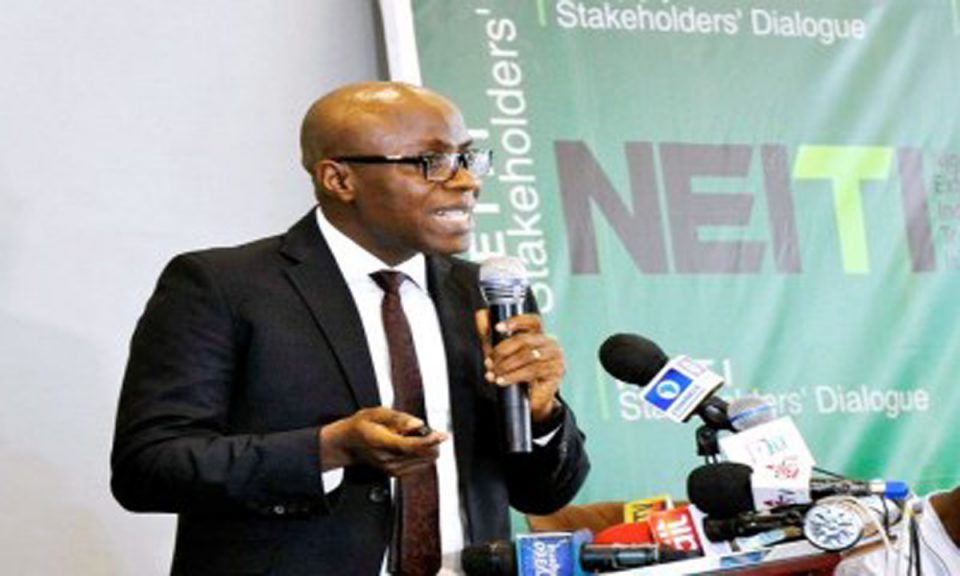*Secret ownership of assets threat to national security, says NEITI
The Inter-Agency Task Team (IATT), comprising 22 agencies, has said that a new action plan would be developed to guide the implementation of its national anti-corruption strategy, including that of the extractive industry.
Head, Technical Unit on Governance and Anti-corruption Reforms (TUGAR), the secretariat of the IATT, Lilian Ekeanyanwu, who spoke at the commemoration of International Anti-corruption Day 2021, tagged: ”Your Right, Your Role: Say No to Corruption,” stressed that the new strategy would be all-inclusive with sector specific strategies for necessary buy-in.
The IATT comprises the Nigeria Extractive Industries Transparency Initiative (NEITI) Economic and Financial Crimes Commission (EFCC), Independent Corrupt Practices Commission (ICPC) Code of Conduct Bureau (CCB) Fiscal Responsibility Commission (FRC), among others.
Ekeanyanwu noted that the first circle of the strategy, which was approved by the Federal Executive Council (FEC) ended in July 2021 and would be re-presented to FEC for extension, based on consensus and recommendations by stakeholders.
She recalled that organisation at an inter-agency retreat in May 2009 adopted a statement of commitment to jointly address pressing issues within the national anti-corruption agenda and commemorate international anti-corruption day to combat corruption.
She urged Nigerians to take responsibility and play their respective roles in combating corruption in different sectors of the economy.
“This has been successfully carried out in the past 12 years when the anti-corruption agencies commenced the practice of jointly commemorating the day with series of activities.
“In order to build on this synergy and momentum, the IATT has organised this high-level seminar to mark the International Anti-Corruption Day 2021.
“A key component of the high-level seminar is a panel discussion where the heads of the key anti-corruption and accountability agencies will speak at panel sessions giving an account of their stewardship in the past one year, and take questions from the audience,” she said.
In his remarks, the Executive Secretary, NEITI, Dr Ogbonnaya Orji, noted that secret ownership of companies was responsible for major problems that Nigeria and other developing countries face today.
Speaking on: “Beneficial Ownership Disclosure: A Tool for Fighting Corruption, Recovery of Assets, Preventing Illicit Financial Flows and Terrorism Financing,” Orji said that secret ownership could fuel corruption, facilitate illicit financial flows and generally undermine the capacity of government to function effectively.
He said that some reports estimated that Africa and other developing countries lost about $1 trillion every year due to corruption, illicit financial flows and related illegal activities.
“Similarly, we are all aware of the recent report by the African Union Panel led by Thabo Mbeki, that Africa loses more than $50 billion every year due to illicit financial flows and that Nigeria alone accounts for about one-third of this amount.
“This report also shows that more than 90 per cent of illicit financial flows in Nigeria occurs in the extractive industry. Recently, a special report by NEITI found that about $4.2 billion worth of crude oil is either lost or stolen every year.
“Taken together, these losses pose serious challenges to government’s ability to deliver public goods and services to citizens. Particularly, secret ownership or exploitation of mineral resources undermines national security and poses an existential threat to the country,” he said.
Orji noted that in December 2019, Nigeria became the first African country to establish a publicly accessible register of beneficial owners, and the first globally to establish a register in extractive sector.
Executive Director, United Nations Office on Drugs and Crime (UNODC), Ghada Waly, in his remarks said corruption undermined rights to justice and opportunity to public services and sustainable future.




